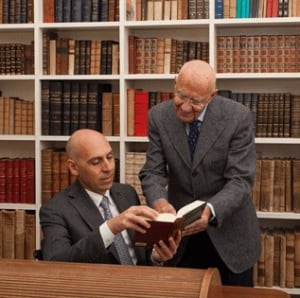EU Property Regime Rules. Marriages & Partnerships
EU property regime rules for cross border marriages and registered partnerships
According to the European Commission, there are about 16 million couples in the EU living in a “cross border situation”. These international couples are citizens and/or, own properties in different EU Member States. Until 2019, no EU property regime rules existed for cross border marriages and registered partnerships.
On 23rd June 2016, Members of the European Parliament approved two regulations. These regulations determine homogeneous rules applicable to property regimes in cross border situations. Council Regulation (EU 2016/1103) determines rules for married couples. Council Regulation (EU 2016/1104) determines rules for civil partnerships. These two regulations entered into force on January 29th, 2019.
The rules determine jurisdiction and applicable law for matrimonial and registered partnership property regimes in case of divorce, separation or the death of one of the spouses or partners.
The objective of the regulations is to increase foreseeability and legal certainty regarding jurisdiction and applicable law in the matter of property regimes of international couples. In addition, the regulations harmonise international private law rules between EU countries.
EU property regime rules determine the applicable law in the event of divorce or death
EU Regulations bring broader legal certainty and end parallel and/or conflicting proceedings in the various EU Member States.
The regulations do not affect the underlying institutions of marriage and civil partnerships. These remain matters defined by the national laws of the EU Member States.
Regulations explicitly regulate two cases of jurisdictional governance. These are the death of one of the spouses or registered partners, and divorce.
In the case of death, the court in a competent Member State, pursuant to EU Succession Regulations, will have jurisdiction in matters arising from the couple’s property.
In the case of divorce, the court called upon to rule on an application of divorce will have jurisdiction, provided the couple agrees. Couples may also reach an agreement regarding jurisdiction during court proceedings.
In cases other than the above mentioned, and in cases where spouses fail to reach agreement, jurisdiction lies with the courts of the Member State where couples are habitually resident. Failing that, jurisdiction lies with Member State where couples were last habitually resident, insofar as one of the spouses or partners is still considered resident there. Otherwise, jurisdiction lies with the courts of the Member State of the respondent’s habitual residence and failing that, the state of the couple’s common nationality at the time of court proceedings. The parties may also agree to give jurisdiction to a Member State whose law is applicable to the matter. Should the respondent take the matter to court, that court will have jurisdiction. This would be irrespective of which court has jurisdiction according to the aforementioned rules.
Choice of law rules is applicable to marriages and registered civil partnerships
The regulations allow spouses and registered partners to choose which country law shall apply in the event of divorce or death. Marriages and partnerships registered prior to 29th January 2019 are subject to national choice of law regulations.
The regulations are applicable in 18 EU Member States that joined the enhanced cooperation initiative on this matter, namely: Belgium, Cyprus, Greece, Croatia, Slovenia, Spain, France, Portugal, Italy, Malta, Luxembourg, Germany, Czech Republic, the Netherlands, Austria, Bulgaria, Sweden and Finland.
The EU members that did not adopt the Regulation are The Republic of Ireland and Denmark. These countries continue to use the choice of law rules of their national laws.
Regulations pertaining to applicable law are universal in scope. Thus, the law of any state, including states that are not members of the EU, may be found to be applicable. The law provided by the regulations is applicable to all assets, irrespective of location.
Finally …
Divorce or death of a spouse or registered partner is hugely emotional wherever you live. Having to work through matters related to inheritance and asset separation can add to the pain. The complications multiply when couples live or own properties in different countries. We understand the legal complexities that international couples can face in Italy. If you need advice, we are here to help.
You may also be interested in Review of EU and Italian Divorce Law. You may also find our info videos useful.


